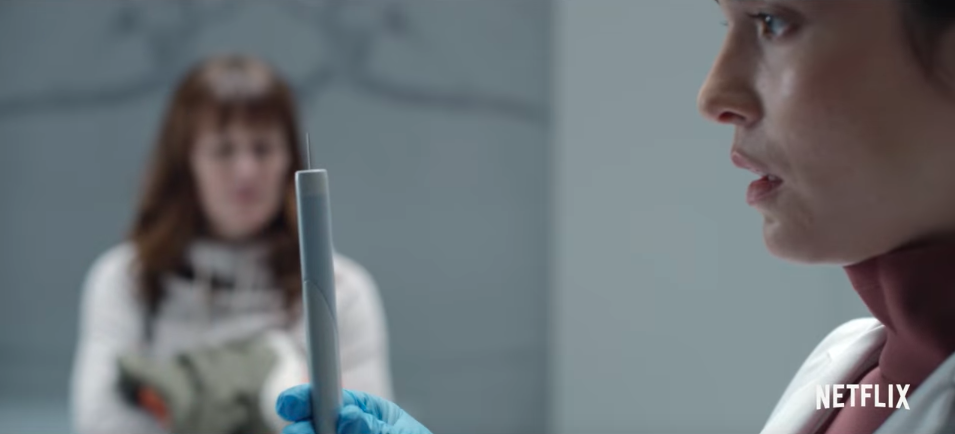Black Mirror season four tackles everything from online dating to serial killers while sticking to what it does best — shocking viewers. Netflix’s sci-fi thriller series highlights the potential horrors of technological advancement focusing heavily on the ethics of mind-reading and tracking devices. In six short but thought-provoking stories, viewers are left questioning to what extent parents and officials can infringe on the right to personal privacy. While season four is surprising, it also strays from its terrifying nature to critique modern love and romance.
The season’s standout episode, “Hang the DJ,” picks up in an alternate universe where romantic relationships have expiry dates. During each relationship, a portable device tracks emotions, thoughts and feelings and uses that data to calibrate each individual’s soulmate. After Amy and Frank follow up a short-lived but meaningful connection with each other with a series of aimless flings and futile long-term relationships, they begin questioning the system and ultimately rebel.
“Hang the DJ” resonates with viewers. It addresses common dating fears and offers thought-provoking solutions to everyday relationship struggles. In this alternate world, individuals hope to be paired with their perfect match. While the system eliminates the doubt prevalent in many serious relationships, the data-gathering technique makes for empty, directionless partnerships in the hopes of finding a genuine connection. An incorrect calibration occurs in Amy and Frank’s relationship when the typical process is disrupted, which forces viewers to find comfort in the unknown and shows that human emotion trumps computer systems in relationships.
While the episode focuses on the limitations of modern romance, “Arkangel” takes overbearing parents to a new level. After nearly losing her daughter Sara at the park, single mother Marie has an Arkangel device implanted into her child. The device enables Marie to view Sara’s daily encounters from the comfort of her home and parentally block Sara’s vision from anything that might be upsetting or traumatizing. Unfortunately, the system causes Sara to grow up in a world devoid of emotion, putting her in dangerous situations during her teenage years.
On the surface, “Arkangel” discusses the ethics of tracking a person and also questions how far parents should go to protect their children. But more importantly, this episode reminds viewers of the importance of personal privacy in human development and growth. While blood and violence may psychologically harm a child, they nevertheless prepare them for the stark reality of our dangerous world.
Although Black Mirror seems to get it right with “Arkangel” and “Hang the DJ,” “Crocodile” leaves viewers angry. In this episode, a woman encounters an ex-boyfriend who threatens to expose the murder they covered up in their youth. Angry, she kills her ex. Later, she is confronted by a series of individuals who threaten to expose her crimes and sets out on a killing spree to eliminate anyone who might share her secrets.
Admittedly, it’s amazing how this alternate universe in “Crocodile” has created an extremely developed lie-detector that not only reads minds but also eliminates dishonesty. Unfortunately, the episode seems more like a repetitive horror film than an episode of Black Mirror.
Black Mirror season four balances innovation with caution. With less blood and violence, it reminds us that, while technology can do so much good, it also has the potential to ruin society as we know it.



